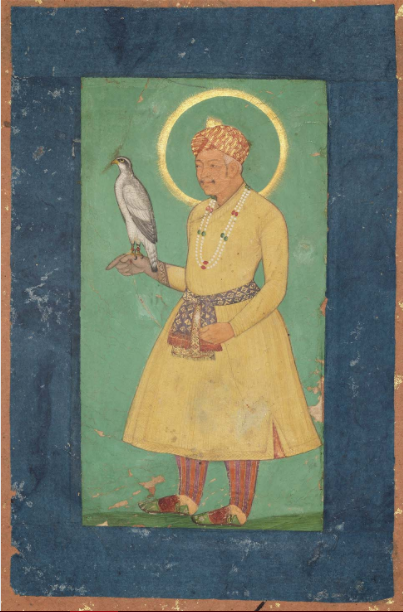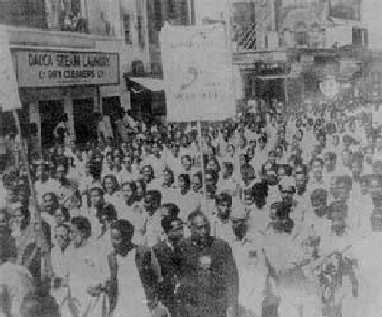|
Public Holidays In Bangladesh
Bangladesh has numerous public holidays, including national memorial, religious and secular holidays of Bengali origin. The Bengali traditional calendar, known as Banggabda is the national and official calendar in Bangladesh. The holidays are celebrated according to Bengali, Islamic or Gregorian calendars for religious and civil purposes, respectively. Religious festivals like Eid are celebrated according to the Islamic calendar whereas other national holidays are celebrated according to the Bengali and Gregorian calendar. While the Islamic calendar is based on the movement of the moon, it loses synchronization with the seasons, through seasonal drift. Therefore, some public holidays are subject to change every year based on the lunar calendar. There are fifteen public holidays in Bangladesh. Muslims and non-Muslims have four religious holidays each in addition to the secular seven national holidays. For the Muslims, four major Islamic holidays: Ashura, Mawlid, Eid ul-Fitr a ... [...More Info...] [...Related Items...] OR: [Wikipedia] [Google] [Baidu] |
Bangladesh
Bangladesh (}, ), officially the People's Republic of Bangladesh, is a country in South Asia. It is the eighth-most populous country in the world, with a population exceeding 165 million people in an area of . Bangladesh is among the most densely populated countries in the world, and shares land borders with India to the west, north, and east, and Myanmar to the southeast; to the south it has a coastline along the Bay of Bengal. It is narrowly separated from Bhutan and Nepal by the Siliguri Corridor; and from China by the Indian state of Sikkim in the north. Dhaka, the capital and largest city, is the nation's political, financial and cultural centre. Chittagong, the second-largest city, is the busiest port on the Bay of Bengal. The official language is Bengali, one of the easternmost branches of the Indo-European language family. Bangladesh forms the sovereign part of the historic and ethnolinguistic region of Bengal, which was divided during the Partition of ... [...More Info...] [...Related Items...] OR: [Wikipedia] [Google] [Baidu] |
Bengali Calendar
The Bengali Calendar or Bangla Calendar ( bn, বঙ্গাব্দ , , Baṅgābda), colloquially ( bn, বাংলা সন, Baṅgla Śon), is a solar calendar used in the Bengal region of the Indian subcontinent. A revised version of the calendar is the national and official calendar in Bangladesh and an earlier version of the calendar is followed in the Indian states of West Bengal, Tripura and Assam. The New Year in the Bengali calendar is known as ''Pohela Boishakh''. The Bengali era is called ''Bengali Sambat'' (BS) or the ''Bengali year'' ( ''Bangla Sôn'', ''Bangla sal'', or ''Bangabda'') has a zero year that starts in 593/594 CE. It is 594 less than the AD or CE year in the Gregorian calendar if it is before ''Pôhela Bôishakh'', or 593 less if after ''Pôhela Bôishakh''. The revised version of the Bengali calendar was officially adopted in Bangladesh in 1987. Among the Bengali community in India, the traditional Indian Hindu calendar continues to be in use ... [...More Info...] [...Related Items...] OR: [Wikipedia] [Google] [Baidu] |
Boishakh
Boishakh (, ne, बैशाख, ''Bôishakh'', ''Baishakh'') is the first month in the Assamese calendar, Bengali calendar and Nepali calendar. This month lies between the second half of April and the first half of May. Etymology The name of the month is derived from the position of the Sun near the star Bishakha (). History The first day of Boishakh is celebrated as the Pôhela Bôishakh or Bengali New Year's Day. The day is observed with cultural programs, festivals and carnivals all around the country. The day of is also the beginning of all business activities in Bangladesh and neighboring Indian state of West Bengal and Tripura. The traders starts new fiscal account book called ''Halkhata''. The accounting in the ''Halkhata'' begins only after this day. It is celebrated with sweets and gifts with customers. Season The month of Boishakh also marks the official start of Summer. The month is notorious for the afternoon storms called Kalboishakhi (''Nor'wester''). ... [...More Info...] [...Related Items...] OR: [Wikipedia] [Google] [Baidu] |
Pohela Baishakh
Pohela Boishakh ( bn, পহেলা বৈশাখ) is the first day of the Bengali calendar which is also the official calendar of Bangladesh. This festival is celebrated on 14 April in Bangladesh and 15 April in the Indian states of West Bengal, Tripura, and Assam (Barak Valley) by Bengalis regardless of religious faith. Celebration of Pohela Boishakh traces its roots back to Mughal rule in this region and also the proclamation of tax collection reforms of Akbar. The festival is celebrated with processions, fairs and family time. The traditional greeting for Bengalis in the new year is "''Shubho Noboborsho''" which is literally "Happy New Year". The festive '' Mangal Shobhajatra'' is organized in Bangladesh. In 2016, the UNESCO declared this festivity organized by the Faculty of Fine Arts, University of Dhaka as a cultural heritage of humanity. [...More Info...] [...Related Items...] OR: [Wikipedia] [Google] [Baidu] |
Bangladesh Liberation War
The Bangladesh Liberation War ( bn, মুক্তিযুদ্ধ, , also known as the Bangladesh War of Independence, or simply the Liberation War in Bangladesh) was a revolution and armed conflict sparked by the rise of the Bengali nationalist and self-determination movement in East Pakistan, which resulted in the independence of Bangladesh. The war began when the Pakistani military junta based in West Pakistan—under the orders of Yahya Khan—launched Operation Searchlight against the people of East Pakistan on the night of 25 March 1971, initiating the Bangladesh genocide. In response to the violence, members of the Mukti Bahini—a guerrilla resistance movement formed by Bengali military, paramilitary and civilians—launched a mass guerrilla war against the Pakistani military, liberating numerous towns and cities in the initial months of the conflict. At first, the Pakistan Army regained momentum during the monsoon, but Bengali guerrillas counterattacked ... [...More Info...] [...Related Items...] OR: [Wikipedia] [Google] [Baidu] |
Proclamation Of Bangladeshi Independence
The independence of Bangladesh was declared on 26 March 1971 at the onset of the Bangladesh Liberation War by Bangabandhu Sheikh Mujibur Rahman; the following day the declaration was broadcast by Major Ziaur Rahman in a radio broadcast. On 10 April, the Provisional Government of Bangladesh issued a proclamation on the basis of the previous declaration and established an interim constitution for the independence movement. First declarations On 25 March 1971, negotiations between Pakistani President Yahya Khan and Awami League leader Sheikh Mujibur Rahman broke down after Khan refused to accept Rahman's plan for a new federal constitution in Pakistan. Rahman's party won an absolute majority in the National Assembly during Pakistan's first free election in 1970. However, the newly elected parliament was barred from taking power due to objections from the Pakistani military and the West Pakistan establishment. The Awami League's 6 points proposal for a Pakistani federation was ... [...More Info...] [...Related Items...] OR: [Wikipedia] [Google] [Baidu] |
Bangladeshi Independence Day
The Independence Day of Bangladesh ( bn, স্বাধীনতা দিবস ''Shadhinôta Dibôsh''), which takes place on 26 March, is a Bangladeshi national holiday. It commemorates the country's declaration of independence from Pakistan in the early hours of 25 March 1971. History In the 1970 Pakistani general election, under the military government of President Yahya Khan, the largest political party Awami League, led by Bangabandhu Sheikh Mujibur Rahman, won a clear majority in East Pakistan national seats as well as provincial assembly. Zulfikar Ali Bhutto conspired with Yahya Khan and changed their position, refusing to hand over power to Sheikh Mujib. Negotiations began between the two sides, however the ruling West Pakistani leadership did not trust Sheikh Mujib, due to instances such as the Agartala conspiracy case. When it became evident that the promises made by the West Pakistan government were not going to be kept, many East Pakistani Bangla-speaking Musli ... [...More Info...] [...Related Items...] OR: [Wikipedia] [Google] [Baidu] |
Sheikh Mujibur Rahman
Sheikh Mujibur Rahman ( bn, শেখ মুজিবুর রহমান; 17 March 1920 – 15 August 1975), often shortened as Sheikh Mujib or Mujib and widely known as Bangabandhu (meaning ''Friend of Bengal''), was a Bengali politician, parliamentarian and the founding leader of the People's Republic of Bangladesh. He first served as the titular President of the Provisional Government of Bangladesh between April 1971 and January 1972. He then served as Prime Minister of Bangladesh from the Awami League between January 1972 and January 1975. He finally served as President again during BAKSAL from January 1975 till his assassination in August 1975. In 2011, the 15th constitutional amendment in Bangladesh referred to Sheikh Mujib as the Father of the Nation who declared independence; these references were enshrined in the fifth, sixth, and seventh schedules of the constitution.http://bdlaws.minlaw.gov.bd/upload/act/2022-04-18-13-27-54-Scheudle__367.pdf Mujib eme ... [...More Info...] [...Related Items...] OR: [Wikipedia] [Google] [Baidu] |
Children's Day
Children's Day is a commemorative date celebrated annually in honor of children, whose date of observance varies by country. In 1925, International Children's Day was first proclaimed in Geneva during the World Conference on Child Welfare. Since 1950, it is celebrated on June 1 in most Communist and post-Communist countries. World Children's Day is celebrated on the 20th November to commemorate the Declaration of the Rights of the Child by the UN General Assembly on 20 November 1959. In some countries, it is Children's Week and not Children's Day. History Origins Children's Day began on the second Sunday of June in 1857 by Reverend Dr. Charles Leonard, pastor of the Universalist Church of the Redeemer in Chelsea, Massachusetts: Leonard held a special service dedicated to, and for the children. Leonard named the day Rose Day, though it was later named Flower Sunday, and then named Children's Day. Children's Day was first officially declared a national holiday by the Repu ... [...More Info...] [...Related Items...] OR: [Wikipedia] [Google] [Baidu] |
Choitro
Choitro ( bn, চৈত্র) is the last month of the Bengali calendar. It falls from mid-March to mid-April and is the last month of Spring ( bn, বসন্ত ''Bôsôntô''). The name of the month is derived from the star Chitra ( ''Chitra''). Culture Traditionally this month is famous for what is called the "Choitro Sale" () when all shopping prices fall discounted (sale) all throughout the month. It is traditionally done in order to sell away all remaining products by the end of year, so that the Haal Khata (), the new account book can be opened on the New Year's Day. Choitro Sankranti is observed in the last day of the month and the last day of the Bengali Calendar. It is celebrated more in rural areas than in urban areas, where it has celebrated for hundreds of years. It is the day before Pohela Boishakh and it more popular than Pohela Boishakh in rural areas. Observances * Choitro 12 - Independence Day (Bangladesh) * Chotiro 30 - Choitro Sankranti * Thursday or F ... [...More Info...] [...Related Items...] OR: [Wikipedia] [Google] [Baidu] |
International Mother Language Day
International Mother Language Day is a worldwide annual observance held on 21 February to promote awareness of linguistic and cultural diversity and to promote multilingualism. First announced by UNESCO on 17 November 1999, it was formally recognized by the United Nations General Assembly with the adoption of UN resolution 56/262 in 2002. Mother Language Day is part of a broader initiative "to promote the preservation and protection of all languages used by peoples of the world" as adopted by the UN General Assembly on 16 May 2007 in UN resolution 61/266, which also established 2008 as the International Year of Languages. The idea to celebrate International Mother Language Day was the initiative of Bangladesh. In Bangladesh, 21 February is the anniversary of the day when the people of Bangladesh (then East Pakistan) fought for recognition for the Bangla language. It is also celebrated in West Bengal, India. History 21 February was declared to be the International ... [...More Info...] [...Related Items...] OR: [Wikipedia] [Google] [Baidu] |







